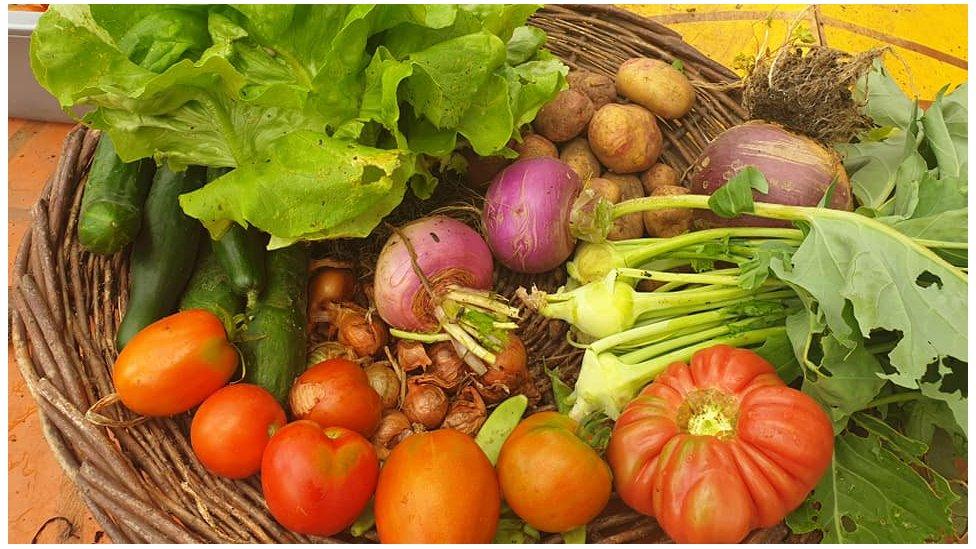'I harvest 70 million daffodils a year but £1 a bunch can't last'
- Published
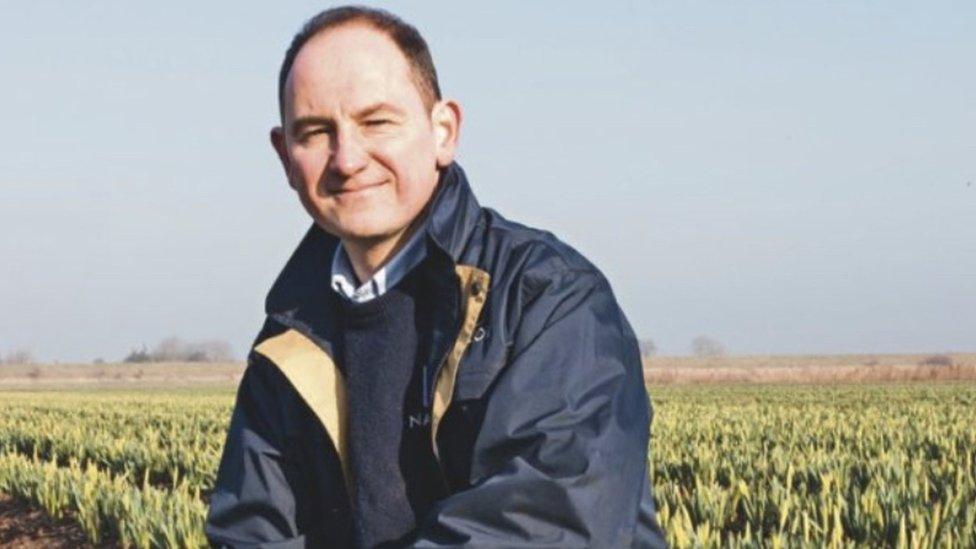
Matthew Naylor never sees his daffodils in bloom - they are picked before they flower
"We're producing about 70 million stems in our own business but harvesting north of a 100 million," says Matthew Naylor, farmer and managing director of Naylor Flowers in Lincolnshire.
His family has farmed in South Lincolnshire since the 1600s and has been producing flowers since the 1940s.
"Daffodils are probably the cheapest flower you can buy in a supermarket, at less than £1 in some retailers," he told BBC 5 Live's Wake Up To Money.
But, he warns, that price can't last.
"We're constantly held to this £1 retail price that just seems locked in everybody's head, everybody knows that that a bunch of daffodils is £1 - but our costs go up and up.
"The shortage of skilled labour means wages are rising. And there's pressure on all costs; labour, refrigeration and transport costs are all rising. But there's this sort of deadlock over price, shoppers expect them to be £1."
Labour shortage
Matthew says he is glad to pay his field workers good wages. "There aren't many daffodil growers left. Field workers are skilled, they require good wages and they are in demand.
"We have fewer migrants workers coming in and when there's a shortage of labour that means the people who are good will end up working for the best employers with the best money.
"So it's not bad news for a good business operator because it creates more barriers for the competition. But it pushes up the cost."
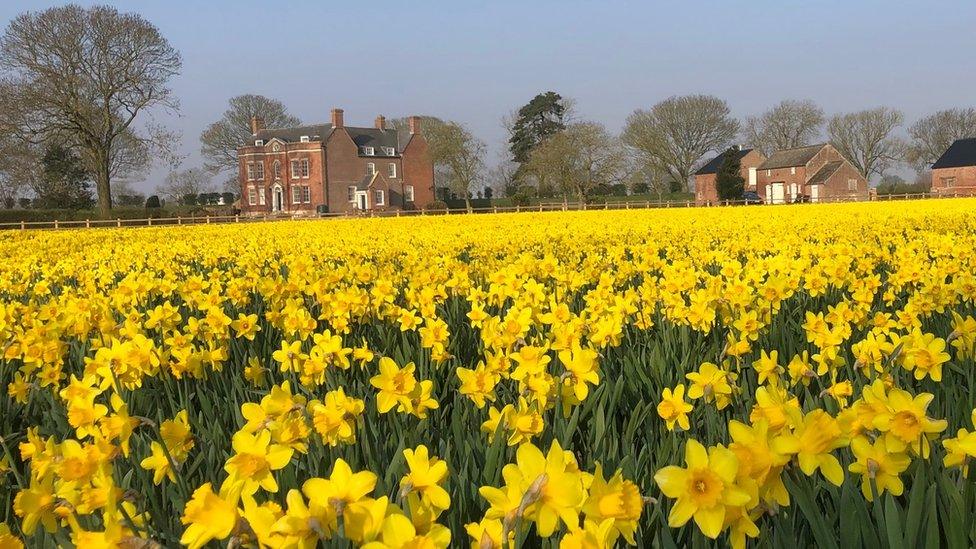
2021 is shaping up to be a good year for demand, he says. "Sales are surprisingly better than they have been [in previous years]. I think that's because more people are at home and are looking for things to treat themselves to."
Daffodil dominance
The UK may be the main grower but daffodils are enjoyed across northern Europe and even the US, with demand peaking at Easter.
Yet they are still picked by hand rather than harvested by machines.
"We produce a range of different flowers all through the year, about 20 different crops and everything's harvested by hand," explains Matthew.
"There's a big drive now, a lot of people see mechanisation as the solution, but people who live in rural communities will see that it's really important to keep money in rural areas and there's no better way of doing that than paying it into wages.
"I'm not in a hurry to mechanise the jobs that we have while we've got willing workers."
The UK is the world's biggest daffodil grower, harvesting an astonishing 90% of the total global production, according to the National Farmers' Union.
And they might be cheap and cheerful to buy but they are big business too, with a retail product value of £71.5m.
An army of around 3,000 pickers nationally are needed to harvest the stems and each field is picked many times to select the flowers at exactly the right time.
'Rollercoaster'
Like many farmers, flower growers have faced a variety of challenges over the last year: "2020 was very volatile," says Matthew.
"People tend to think that working in a flower field would be some sort of rural idyll but we rubbed up against all of the changes around our trading relationship with Europe, with eastern European workers and with weather. We've just had the wettest winter for 100 years so it was a bit of a rollercoaster.
The changes to how the UK trades with Europe has also added to the work involved in selling his daffodils into northern Europe. "There's a lot more friction, going back to having to issue plant health passports has created a lot of hold-ups and headaches, and we're still getting to grips with that as an industry."
No flowers in fields
At £1 a bunch, daffodils are the cheapest cut flower on the market so they're an affordable treat and splash of colour for many UK homes.
But it's not a treat that the farmers themselves get to enjoy in their fields.
"People imagine these beautiful flower fields," says Matthew. "But we're actually harvesting them just before they've opened so that people get to enjoy the full beauty of them in their homes rather than my field."
You can hear an interview with Matthew and more in Wake Up To Money on BBC Radio 5 live, available now on BBC Sounds.
Related topics
- Published16 January 2021
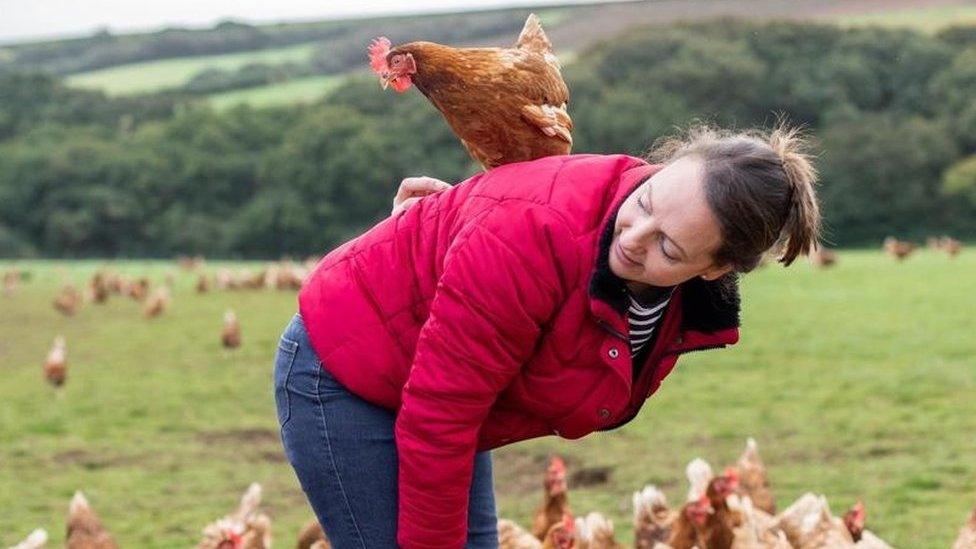
- Published14 January 2021
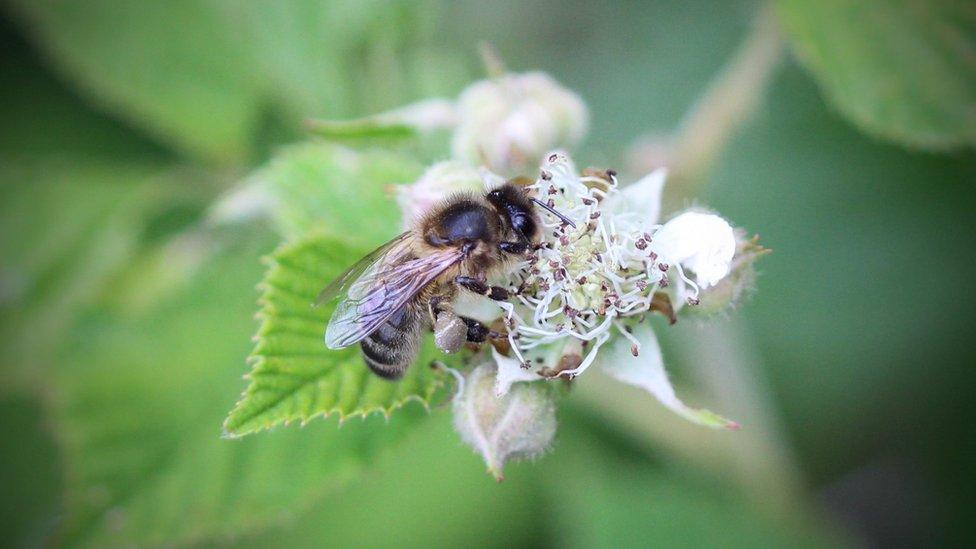
- Published14 January 2021
